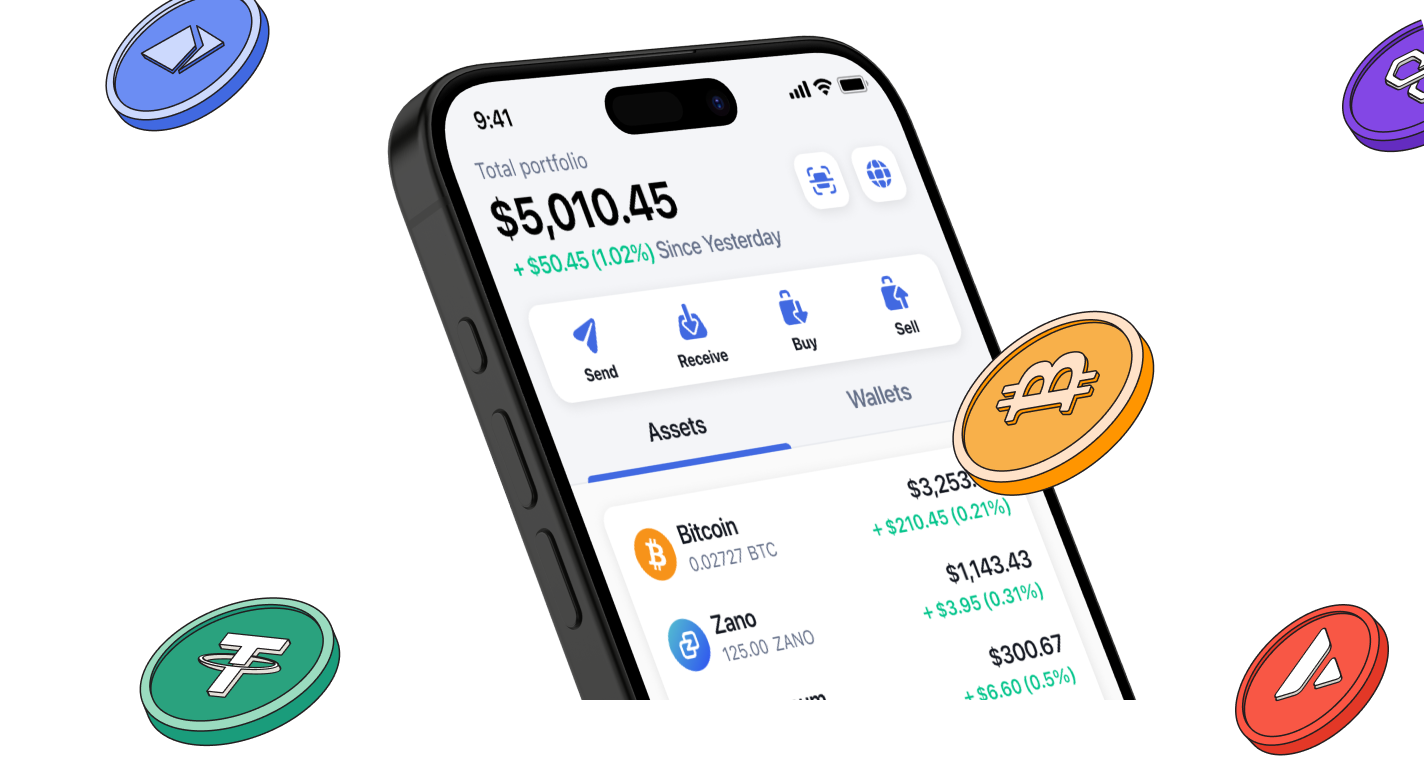What is crypto insurance?
Last updated

Table of Contents
How does insurance work?
Insurance is necessary for a thriving economy as it softens the impact of financial hardship by underwriting risk. The basic idea of insurance is to move risk from individuals who might be unable to handle unplanned financial hardship, to collections of individuals. In the insurance industry, the way this risk is spread evenly across a group of contributors is called “risk pooling." Individuals get peace of mind by paying premiums that are considerably less than a devastating loss. Groups, usually represented by insurance companies, earn profits and provide support for individuals as long as over time the premiums are greater than what they have to pay out in claims.
Problems can arise when the number of claims or the cost of claims rise. This can bankrupt insurance companies. On the other hand, for-profit insurance companies can exploit people by over charging, knowing people will continue to pay for risk protection.
Blockchain is being used in two main ways as it relates to insurance. First, it is being used by traditional insurance companies to increase efficiency and transparency. Second, it is being used in DeFi to eliminate the need of a trusted third party, like traditional insurance companies, who’s incentives are often at odds with its customers.
Crypto in Traditional Insurance
Blockchain-based technology is already being used in legacy insurance companies to help with problems of efficiency and transparency. Here are a couple of examples of insurance companies using blockchain technology:
- State Farm and USAA use a blockchain-based system for automatic subrogation claims settled between the two companies.
- Anthem, the second-largest health insurance company in the U.S, has started to use blockchain technology to help patients securely access and share their medical data. Secure and granular access of medical data is a key pain point felt in the insurance and medical industry.
- Hong Kong insurer Blue Cross has been using blockchain since April 2019 to speed up medical insurance claims processing and prevent fraud. Both processing and validating claims has been a time-consuming and expensive process.
DeFi Insurance
DeFi insurance allows people to protect their assets through smart contracts that pool funds from multiple people to cover potential losses. The premiums paid by people are used to create a pool of funds that can be used to pay out claims in the event of a covered loss. All of this happens transparently on a blockchain like Ethereum.
Currently, DeFi insurance is primarily used to protect against risks such as smart contract bugs, protocol failures, stabelcoin de-pegs, and other events that could cause financial losses in the DeFi ecosystem. Projects are currently expanding the use of DeFi insurance into new use cases such as airplane insurance (delays, cancelations, etc..), drought insurance, and hurricane insurance.
Over time, it seems likely that traditional insurance companies and DeFi upstarts will cover more of the same areas. Traditional insurance companies will move more into crypto and DeFi protocols will expand their coverage into areas typically covered by traditional insurance companies.
The Benefits of DeFi Insurance
Blockchain is already being used by large traditional insurance companies to increase efficiency and transparency. Blockchain increases efficiency by reducing the high costs and long processing times associated with traditional insurance companies.
Decentralized applications (DApps) can further increase efficiency and transparency gains over traditional insurance companies. They are more cost efficient by needing less overhead in terms of workforce, materials, and real estate. DApps are faster by using more automation via smart contracts, never sleeping (there are no DeFi business hours or holidays), and using a wider pool of people to asses risk. They are more transparent because assessments are done by on-chain members of the DeFi insurance protocol, and voted on by the community. By contrast traditional insurance claims are still decided in-house and with little to no insight into the opaque decision making process.
In addition to all of that, unlike many traditional insurance companies, DeFi insurance protocols’ incentives are aligned with their insured. Take the highly dysfunctional US insurance industry, which spends considerable time and effort delaying or denying coverage of claims knowing that every minute delayed, or every dollar denied is profit for the insurance company. Since all of the insurance companies do this, there is no downside to denying customer’s claims because there isn’t anywhere else to go. These for-profit companies fight for the profits of their shareholders, at the expense of their customers. This is a twisted incentive structure that makes claimants antagonistic to the insurance company. DeFi flips this on its head by aligning the protocol with insurance holders.
How does DeFi insurance work?
DeFi insurance works by replacing a trusted third-party with a cooperative (co-op). Unlike traditional insurance companies, every person who is paying a premium is also an owner of the insurance “company," and thus can have a say in what claims the DeFi protocol pays out. In order to buy insurance coverage, a person must buy a piece of the co-op, a stake in the protocol.
Members of the co-op can vote however they want on claims, but if the co-op starts denying legitimate claims, then people will lose trust in the efficacy of the platform and stop using it. The opposite is true of honest voting. People will see that the co-op is effectively protecting against risks and use the protocol more, increasing premiums received and growing the platform. Therefore, members of the co-op are strongly incentivized to vote honestly in order to maintain a sterling reputation. To prevent co-op members from prioritizing short-term gains, members are usually required to lock up their stake.
DeFi Insurance Use Cases
As mentioned above, the most common DeFi insurance use cases are to protect against on-chain risks. The reason for this is because they are the simplest insurance products to verify claims.
Smart contract bugs: Smart contract bugs can result in the loss of the funds people have deposited into a DApp.
Protocol failures: DeFi protocols can lose funds for technical vulnerabilities like the aforementioned smart contract bugs, but also from security breaches and fraud.
Stabelcoin de-pegs: Stablecoins are designed to maintain a fixed value with respect to a particular asset or currency, usually the U.S. Dollar. However, there are several factors that can cause stablecoins to de-peg, or lose their fixed value.
Centralized exchange failures: As 2022 has shown, centralized exchanges are vulnerable to a number of failures that can result from security breaches to outright insolvency.
Flight delay or cancelation: This is not a DeFi use case! Using oracles with access to flight data, a smart contract can automatically pay out if a flight is delayed by a certain amount (e.g., delayed more than 45 minutes), or canceled.
Related guides
Start from here →
How to enter a new chain
This guide will show you the best practices when entering a blockchain for the first time.

How to enter a new chain
This guide will show you the best practices when entering a blockchain for the first time.

How to use a DEX
Learn how to use decentralized exchanges (DEXs) to swap between cryptoassets permisionlessly.

How to use a DEX
Learn how to use decentralized exchanges (DEXs) to swap between cryptoassets permisionlessly.

How to provide liquidity on a DEX
Learn about the importance of providing liquidity, and start earning rewards while supporting decentralized finance.

How to provide liquidity on a DEX
Learn about the importance of providing liquidity, and start earning rewards while supporting decentralized finance.

How to lend in DeFi
DeFi lending protocols empower you to earn interest on your deposits and/or use them as collateral to borrow.

How to lend in DeFi
DeFi lending protocols empower you to earn interest on your deposits and/or use them as collateral to borrow.
STAY AHEAD IN CRYPTO
Stay ahead in crypto with our weekly newsletter delivering the insights that matter most
Weekly crypto news, curated for you
Actionable insights and educational tips
Updates on products fueling economic freedom
No spam. Unsubscribe anytime.



Start investing safely with the Bitcoin.com Wallet
Over wallets created so far
Everything you need to buy, sell, trade, and invest your Bitcoin and cryptocurrency securely

© 2026 Saint Bitts LLC Bitcoin.com. All rights reserved



